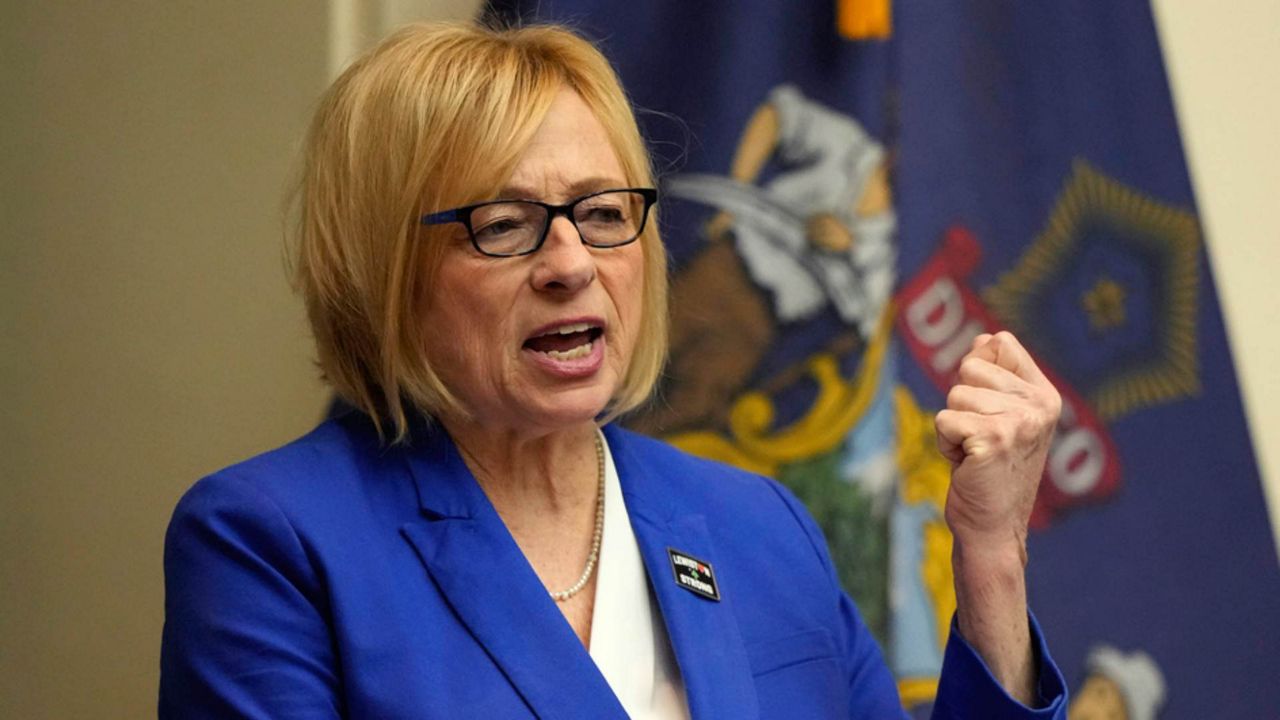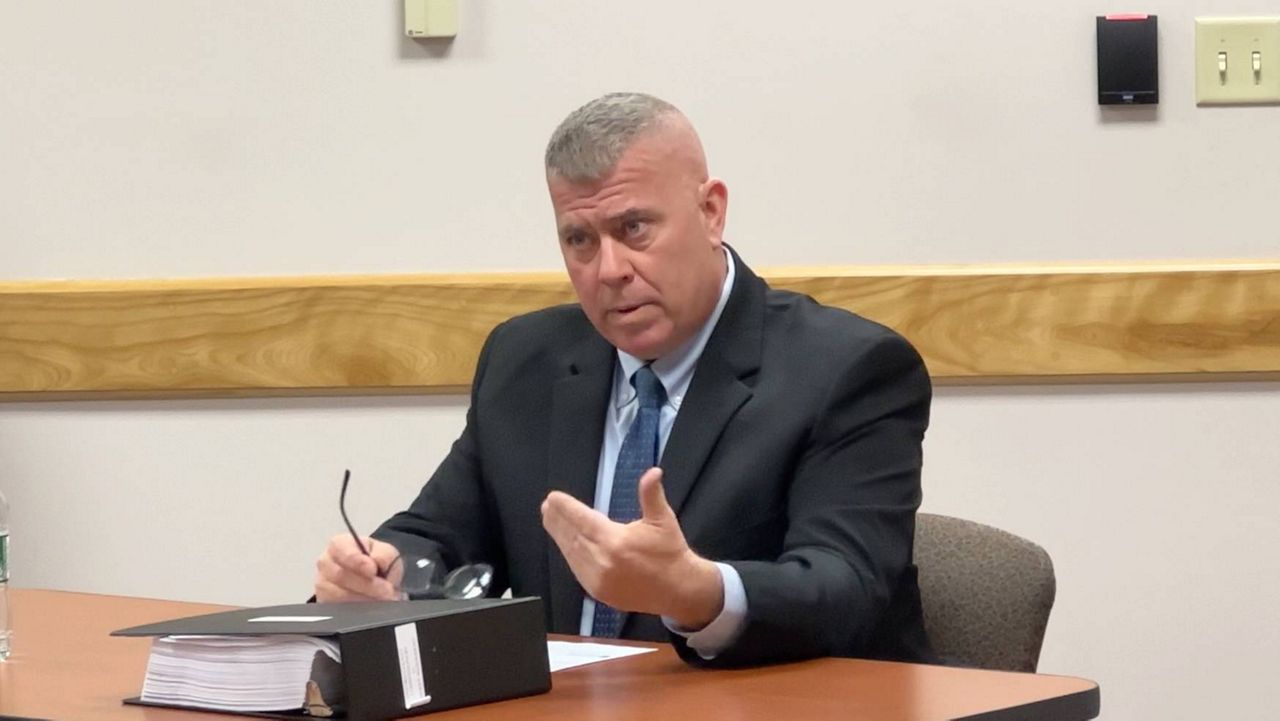Maine Secretary of State Shenna Bellows is expected to rule Friday on whether former President Donald Trump’s name should appear on the Republican primary ballot in March.
Former Portland Mayor Ethan Strimling, a Democrat, and former state Sen. Kimberly Rosen, a Republican, are among those who are challenging whether Trump qualifies under the Constitution to run for office again.
That’s because they say Trump incited insurrection on Jan. 6, 2021, during a speech to supporters before they attacked the U.S. Capitol to try to stop the Electoral College votes from being counted.
The Constitution specifically refers to insurrection in the 14th Amendment, saying that “no person” can serve if they previously took the oath of office and “have engaged in insurrection or rebellion.”
However, it goes on to say that Congress “may” vote to “remove such disability.”
On Friday, both sides laid out their cases at the State House.
“There is no doubt that Donald J. Trump willfully violated his oath of office to preserve, protect and defend the Constitution while he was president of the United States,” Mary Anne Royal, a Winterport resident, said during Friday’s hearing. “No person who has taken that oath of office, and then violated that oath so egregiously, can ever be trusted to hold public office again.”
But Trump attorney Scott Gessler said Trump did not engage in insurrection and that it’s up to Congress to make those kinds of decisions, not Bellows.
“This tribunal, this agency doesn’t have authority because it requires congressional action,” he said Friday. “(The Constitution) doesn’t allow states to do it, and it certainly doesn’t allow administrative agencies.”
The effort to keep Trump’s name off the March 5, 2024 Maine GOP primary ballot is one of several across the country. So far, no agency or court has ruled in favor of removing his name from the ballot, according to Lawfaremedia.org, which is tracking the cases.
On Dec. 1, the Maine Secretary of State’s Office announced that six Republicans qualified for the primary ballot: Trump, North Dakota Gov. Doug Burgum (who has since dropped out), Florida Gov. Ron DeSantis, former U.N. Ambassador Nikki Haley, businessman Vivek Ramaswamy and Ryan Binkley, a Texas pastor.
That set off the flurry of challenges to Trump, with three appeals on behalf of six individuals filed by the Dec. 8 deadline.
In his challenge to Trump, Portland attorney Paul Gordon took a different tack. He wrote that since Trump has said he won the 2020 election — an assertion that has been disproven multiple times — he is disqualified from running again because presidents can only serve two terms.
Brunswick attorney Benjamin Gaines, who filed a challenge on behalf of Strimling, Rosen and former state Sen. Tom Saviello of Wilton, who served as a Republican but considered an independent run for governor in 2022, outlined a 14th Amendment argument.
He argued that “having previously taken an oath to support the Constitution, Trump engaged in insurrection against the same, and therefore is now ineligible to hold any office, civil or military.”
He also referenced a November decision in Colorado in which a trial court concluded that Trump had “engaged in insurrection.” But the court stopped short of removing his name from the ballot.
That case has now moved on to the Colorado Supreme Court, which appeared wary of disqualifying Trump from the ballot at a Dec. 6 hearing, according to The Hill. That case could end up at the U.S. Supreme Court.
In Maine, both sides have until 5 p.m. Tuesday to file closing briefs, according to Bellows office.
She intends to issue her decision by the end of the day Friday, but that is not a hard deadline, according to her office.
Spectrum News Digital Journalist Sean Murphy contributed to this report.









